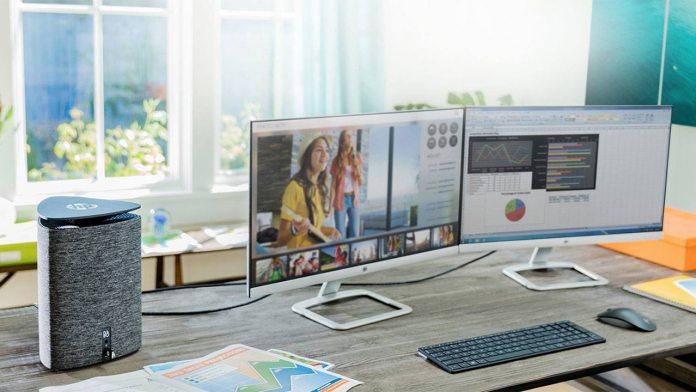The consumer electronics show began yesterday, and that means a slew of new hardware. For HP, that includes devices like its 2-in1, the Envy x2, as well as the Spectre x360 and Pavilion Wave desktop.
Of course, not all of this is new. HP first unveiled its Envy x2 last month with a Snapdragon 835. However, its new version contains a 7th Gen Intel Y series processor, allowing for a bump in performance. It also features a more solid kickstand, versus the Snapdragon's more flexible one.
Unfortunately, it all comes at a cost. The Intel x2 cuts the battery life down to just 15 hours versus the Snapdragon's 22. Part of that is due to its use of Windows 10 Home, rather than Windows 10 S, but the processor also plays a significant role. For the power, you'll also have to put with a millimeter extra thickness and an extra 0.2lbs.
Other than that, the two models are almost identical, and that includes the support for HP's fast charge tech. HP somewhat nullifies the battery life decrease on the Envy x2's Intel variant by promising 90% charge in just 90 minutes.
HP Spectre x360 15
While the Envy x2 presents more choice for consumers, the release of the new Spectre x360 15 could be much more interesting. Though there's not a huge aesthetic upgrade from the last interaction, it comes with one significant change.
For the first time, the Spectre x360 15 will give consumers the choice between Nvidia and AMD graphics. The laptop debuts Radeon RX Vega M graphics, meaning the ability to play most modern games in 1080p.
That's backed up by an 8th generation quad-core processor, which should ensure solid performance across the board. Alternatively, those less interested in gaming can opt for the GeForce MX150, which should be enough to edit videos and run some less demanding titles.
As you would expect, that powerful hardware takes its toll on the battery, but the x360 15 still has a respectable 13.5 hours. Again, it pairs with HP's fast charging, for 90% in 90 minutes, or 50% in 30. It will also feature a 4K UHD 15.6-inch touchscreen, as well as Windows Hello and fingerprint authentication.
The Pavilion Wave
One of the biggest surprises of CES so far was the huge push of Amazon Alexa into the PC space. As we wrote earlier, Lenovo, Asus, Acer, and HP are all planning support for the virtual assistant, meaning users will have a choice for the first time.
Luckily, HP already had a device that emulates the bin-like design of smart speakers in its Pavillion Wave. Its compact design will give access to Alexa's huge skillset, with an integrated lightbar to show when she's listening.
It's powered by updated 7th gen Intel Core processors, with improved speakers, Microphones and more. HP and Amazon say it can hear commands from any angle, set timers, play music, and control smart home devices.
That last feature is important, given Cortana's limited skillset in that regard. Though Alexa is only available currently on select devices, it's likely that will change. The result could be very strong competition, especially considering Microsoft's lack of first-party smart speakers.






